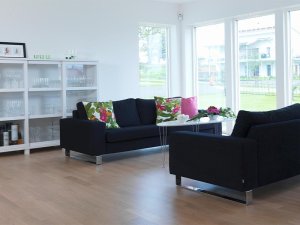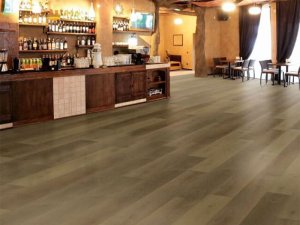Vinyl Flooring Knowledge —-UV coating is important for vinyl flooring
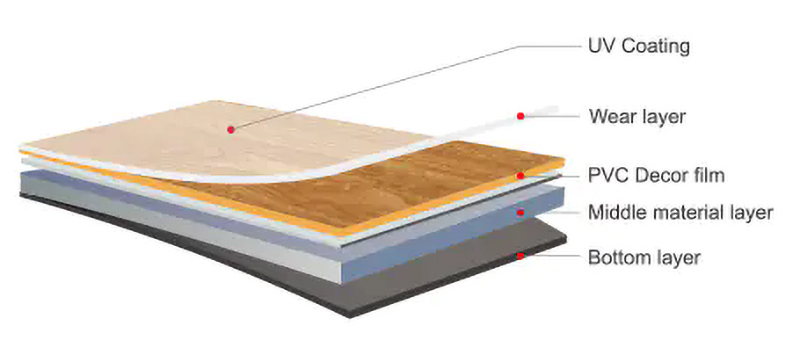
As the most popular vinyl flooring for purchasers, with its increasing number of derivatives and various fancy varieties accepted by consumers, the advantages of vinyl flooring speak for themselves. As a professional over vinyl flooring manufacturer, we pay close attention to technical details. We introduce to you purchasers in stages the added effect that each step of the vinyl flooring production process brings to the performance of the floor, so that you can better understand and trust our products.
It is known that vinyl floors, also known as laminates, are made of various materials. This process is applied on a variety of composite sheets. In order to improve the durability of the product, the surface of the vinyl floor adopts ultraviolet coating process, forming a high hardness coating on the surface of the floor and improving the service life of the vinyl floor.
Ultraviolet coatings are coated on the floor by dipping, leaching, painting, rotating, etc., and then cured into film by ultraviolet photons. Ultraviolet curing is the process of changing the molecular arrangement of matter from low molecule to polymer using ultraviolet light irradiation at wavelength 200-450nm. Ultraviolet curing requires the curing conditions or requirements of coated materials, adhesives or other perfusion sealants cured by ultraviolet rays, which are different from heating curing, adhesive curing, natural curing, etc. Originating in the international paint market in the 1970s, this technology is a whole new green technology.
UV surface coating curing technology has been widely used in the West since the end of the 20th century. This process method can be employed whenever there is a need for enhanced surface hardness.
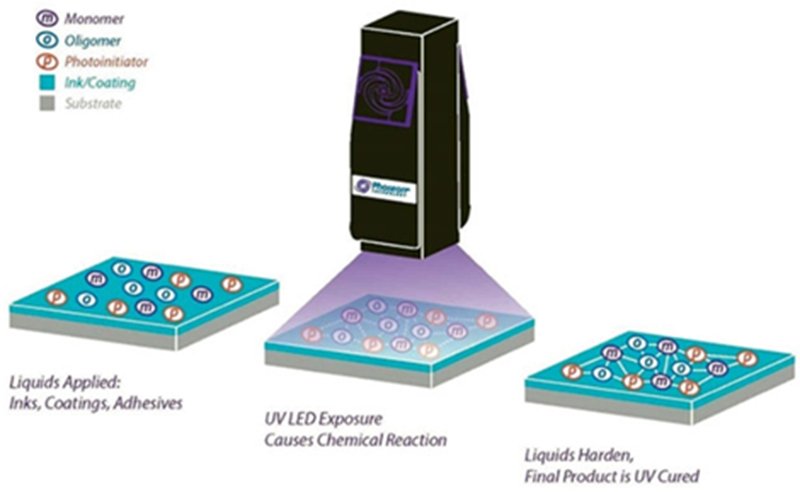
Benefits of UV surface hardening:
- Improve the wear resistance and slash resistance of the covering. Coatings cured by ultraviolet surfaces are usually only a few tens of nanometers, but can provide wear resistance of up to 99% or more. For vinyl flooring, UV and wear layers differ in the amount of hardness provided. The presence of the UV layer guarantees the integrity of the floor, and once the UV layer is exhausted, the wear layer consumption means that the floor thickness begins to change.
- Resistant to chemical corrosion, the UV layer has a certain proportion of alumina crystals with stable chemical properties and excellent corrosion resistance to most acidic, alkaline, saline and molten solutions. Because of the presence of UV layers, vinyl floors can be used in more demanding places such as kitchens, laboratories, hospitals, etc.
- It is not easy to burn and high-temperature resistance because the alumina crystals in the UV coating have strong antioxidant properties. Cannot be ignited or damaged by high temperatures. As a floor for everyday use, the greatest hazard is the burning of cigarette butts, which, by testing, is extinguished on the vinyl floor or ignited for a long time without causing UV layer damage.
- Excellent stability. The UV coating molecule rearranged by ultraviolet radiation is arranged in crystal order. It has high stability and can protect the vinyl floor from fading and deformation caused by the influence of daylight and high temperature.
- Excellent optical clarity, UV coating can be transparent and frosted, transparent form provides glass-like optical performance, high light passability, and provides a perfect display of decorative detail while protecting the vinyl floor.
- Environmentally friendly, UV-cured high-hardness transparent coating does not contain volatile organic compounds. In the process of production, the process of coating and brushing is adopted.
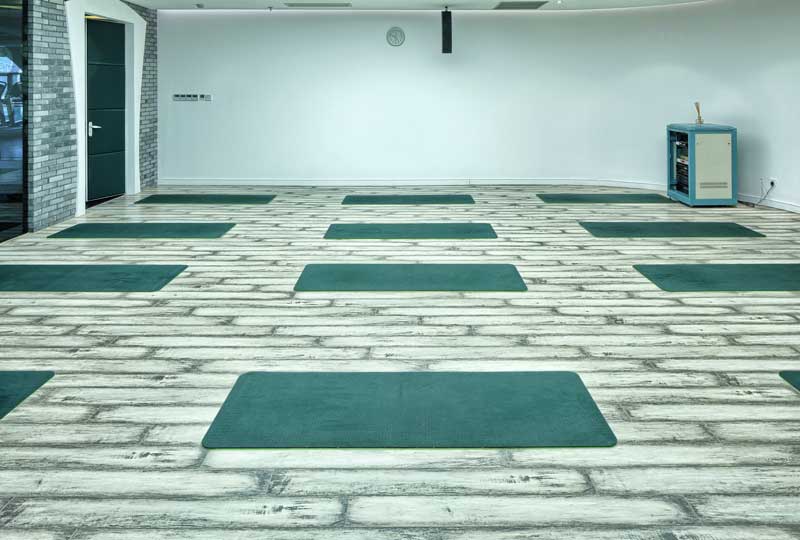
Ultraviolet UV coating is the key to the performance modification of vinyl flooring. Through the description above, it can be seen that the performance of vinyl flooring is closely related to the quality of UV coating.

